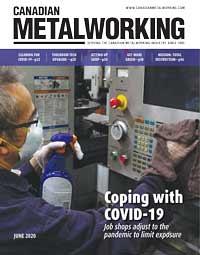General Manager of Emergency Management and Environmental Response Services
- FMA
- The Fabricator
- FABTECH
- Canadian Metalworking
Cleaning for COVID-19
Manufacturers need proper cleaning protocols to keep workers safe
- By Chase Porter
- June 8, 2020
- Article
- Health & Safety
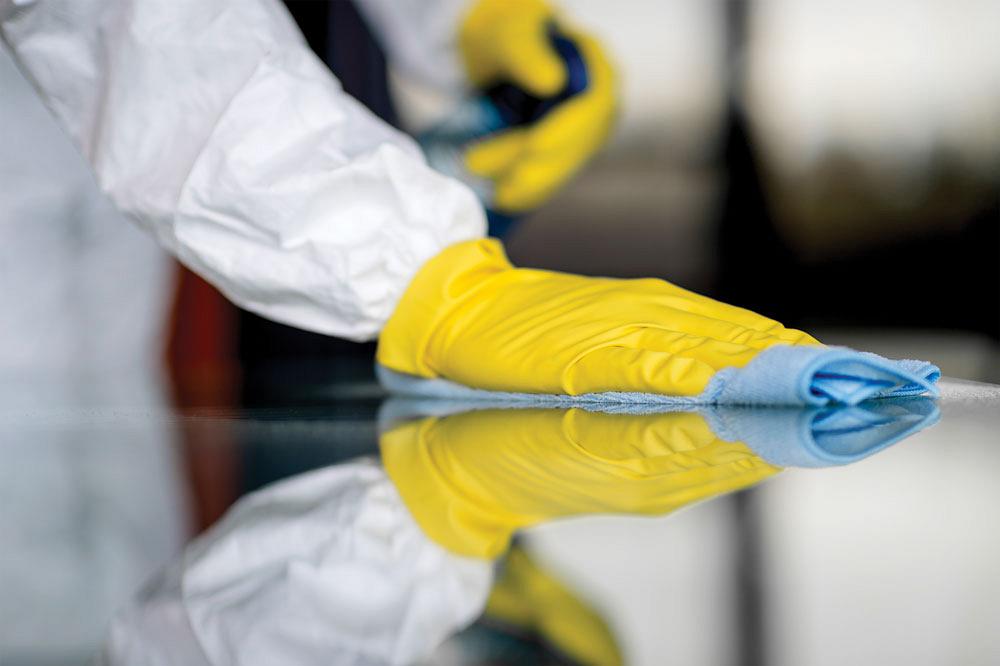
A professional decontamination company that is familiar with proven decontamination techniques and processes has the know-how in combatting this type of virus.
As provinces across the country restart their economies, businesses are faced with the daunting task of bringing back their employees without risking workplace spread of COVID-19.
For businesses in every sector, establishing proper cleaning protocols dramatically reduces that risk. Unfortunately, the complexion of manufacturing workplaces makes cleaning to prevent COVID-19 a lot more challenging than in other industries. Manufacturing businesses often are labour-intensive, largely segmented with distinct work areas (shop floor, warehouse, offices, common areas), and tend to have a range of equipment.
The good news is that there are immediate steps manufacturing businesses can take to keep employees safe.
Preventive Measures
As they say, “A pound of prevention is worth a pound of cure.”
For all companies this means following the recommendations that government and health officials have drilled into us over the past several weeks: Maintain physical distancing, ensure handwashing stations are available, provide employees with personal protective equipment, and limit congregation and crowding.
In addition, we recommend that employers promote frequent handwashing with ample signage and encourage employees to clean their workstations regularly throughout the day. Make it easy for them: Provide them with disinfectant wipes.
When cleaning the office, employees or the cleaning crew should wash all frequently touched surfaces -- including desks, tables, door handles, and light switches—using an EPA-registered disinfectant. How often you should clean offices and common areas depends on several factors. As a rule of thumb, the more traffic, the more often you should be cleaning.
Cleaning the shop and shop equipment requires special care and attention. Keep machinery clear of debris and unnecessary materials, and use disinfectant to wipe down all equipment before and after each use.
Be warned, however, that some disinfectants may be abrasive to certain surfaces. A common problem we hear about, especially from companies that hire inexperienced cleaning crews, is equipment getting damaged from improper use of cleaning products. Your cleaning staff should be knowledgeable about manufacturer recommendations and be able to develop innovative choices for you. For one of our clients, for example, we have been using a bleach solution in spray bottles for most surfaces and alcohol wipes for electronics that can potentially be damaged by liquid spray. For another client, we used Decon 30 for their transportation fleet to prevent any discolouration of their car seats from bleach-based products.
Daily Temperature Checks
Companies should also consider implementing a pre-screening questionnaire and temperature check program for all employees before they start their shifts. For one of our clients, we set up a two-stage process in which visitors have their temperature taken and are asked the following five questions every day:
- Are you returning to work after being off for travel or sickness?
- Do you have a new or worsening cough, fever or chills, shortness of breath, or flu-like symptoms?
- Have you travelled outside of Canada?
- Have you been in contact with anyone who has tested positive for COVID-19?
- Have you been in contact with someone who is suspected to have COVID-19?
If any employee answers “yes” to any of those questions, or if they have a fever, they shouldn’t be allowed on-site for a period of 14 days.
So what should you do if one of your employees gets diagnosed with COVID-19?
As we’ve seen over the past several months, COVID-19 can be highly contagious. If any of your employees have tested positive or have come in contact with someone who has tested positive for COVID-19, we recommend an immediate deep cleaning and decontamination program to help avoid the type of tragic outbreaks we’ve in some facilities across the country.
We recommend hiring a professional decontamination company that is familiar with proven decontamination techniques and processes. It’s likely that your regular cleaning staff or janitorial team just doesn’t have the experience or know-how in combatting this type of virus.
Whoever your service provider is, make sure it’s using Centers for Disease Control (CDC) and Health Canada products like Decon 30 and sodium hypochlorite, which are proven to eliminate the virus from your facility.
The cleaning team also must wear certified personal protective equipment, including a National Institute for Occupational Safety and Health- (NIOSH-) approved N95 mask along with safety goggles, a protective Tyvek suit, nitrile gloves, and approved footwear that can be properly disinfected through decontamination. We recommend that, for improved protection, each member of your decontamination team wear an air-purifying respirator with P100 filters and be decontaminated prior to leaving the work site.
All waste materials and debris should be packaged and transported to meet Transportation of Dangerous Goods regulations. Waste should always be packaged, labelled, and delivered to a facility that has the capabilities to dispose of hazardous waste to prevent the further spread of COVID-19.
Over the past several weeks, we’ve been inundated with calls from manufacturing companies from across the country about implementing cleaning programs. While these new protocols may be cumbersome, we’re pleased to see the manufacturing sector step up to prioritize the safety of their employees and their families and fight against future spread of COVID-19.
Chase Porter is general manager of emergency management and environmental response services for QM Environmental, 3580 Laird Road, Unit 1, Mississauga, Ont. L5L 5Z7, 416-253-6000, www.qmenv.com.
About the Author
subscribe now


Keep up to date with the latest news, events, and technology for all things metal from our pair of monthly magazines written specifically for Canadian manufacturers!
Start Your Free Subscription- Trending Articles
Sustainability Analyzer Tool helps users measure and reduce carbon footprint

GF Machining Solutions names managing director and head of market region North and Central Americas

Mitutoyo updates its end-user portal
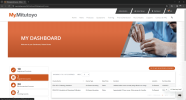
Enhance surface finish with high-speed machining
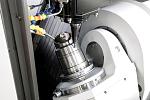
CME's Health & Safety Symposium for Manufacturers
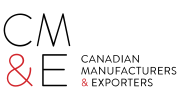
- Industry Events
Automate 2024
- May 6 - 9, 2024
- Chicago, IL
ANCA Open House
- May 7 - 8, 2024
- Wixom, MI
17th annual Joint Open House
- May 8 - 9, 2024
- Oakville and Mississauga, ON Canada
MME Saskatoon
- May 28, 2024
- Saskatoon, SK Canada
CME's Health & Safety Symposium for Manufacturers
- May 29, 2024
- Mississauga, ON Canada













